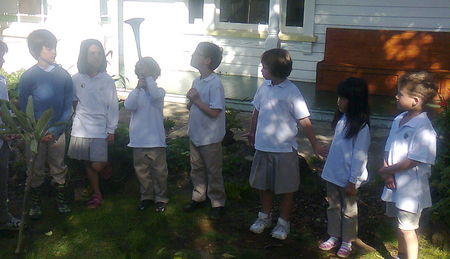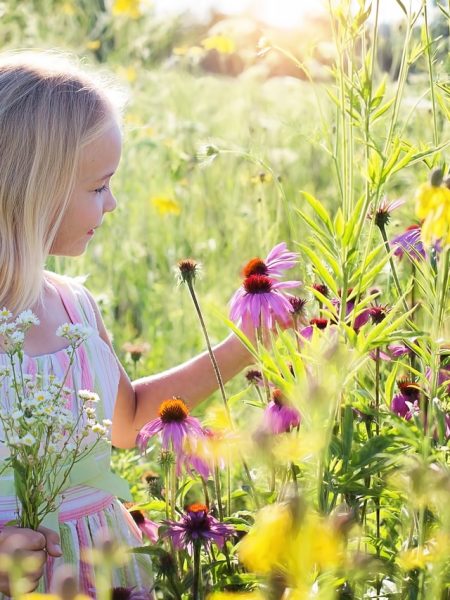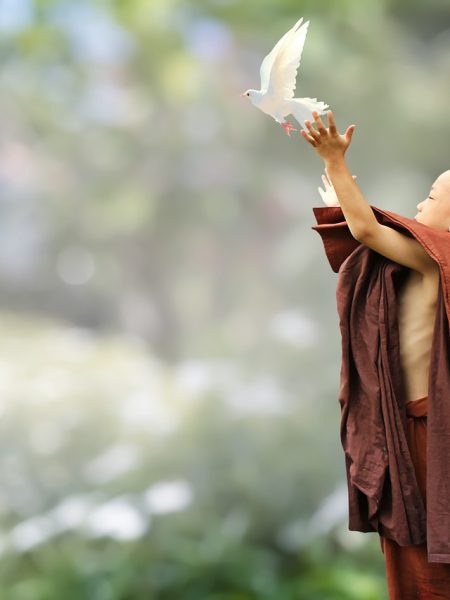An article by contributing writer Jogyata Dallas
Reprinted with kind permission of Indianz Outlook
One very positive attribute of life in New Zealand is an acceptance of religion and the many manifestations of spirituality throughout our culturally diverse society. As one example, in the past twelve months alone there have been many media articles about the growing practice of meditation in schools – not only as an effective antidote to student stress, but in recognition of a need to nourish a deeper aspect of our human nature and of the value of stillness as a creative place in our intelligence.
The Montessori and Rudolf Steiner philosophies have long recognised this principle, but a balance between academic study with its focus on the mind – knowledge retention and information – and the humanities where the ‘heart’ is more important – art, literature, music, creativity – is now being more widely considered and restored.

Golden Grove School in Onehunga is an excellent example of holistic education, recently celebrating its seventh year since opening. Its principal, Helena Royden, spent some time studying at the Oneness-Family School in Washington DC, a highly successful school set up by students of the spiritual master Sri Chinmoy and one that seeks to value and develop the unique capacities of each child. Golden Grove now has 40 pupils and five staff, focusing on smaller classrooms that enable more teacher- pupil individual time and attention to the uniqueness of each child. All of the staff are practitioners of meditation in their own lives, and encourage ‘quiet time’ and simple meditation in the classrooms as a practice that enables better learning and harmony.
“Our 40 pupils span ten different nationalities and many different religious and cultural traditions, but meditation is a common skill compatible with any point of view. It’s a way of creating a truly peaceful environment, better concentration for learning and an understanding among the children of the spiritual side of their natures. We use kindness in solving disputes, encourage developing a calm mind, and we rely on the power of the heart to find good solutions to all issues” Helena comments.
“Silent reflection is a part of our daily schedule because it gives children time to direct their attention and energy, to focus on the task at hand and to act with clarity. We encourage children to develop their wisdom, to think and feel for themselves, to distinguish between what is right and wrong, so that they may become responsible individuals. In order to do this, children need to learn about the world and come to know themselves.”
One of the things that makes Golden Grove School a little different from other schools is that it gives children a chance to explore the full richness of the world not only within them but around them. Its educational program is infused with adventurous field trips, guest tutors and extracurricular activities out and about in Auckland’s hinterland.

“Activities at Golden Grove go way past the classrooms and our playground – we run overnight camps; trips out into the Waitakere Ranges and an introduction to living forest ecology; visits to the Nihotopu dam and an understanding of its engineering and water chemistry; participation in the School Gymsport Festival held at Mt Roskill last July; and even an annual Time Capsule experiment. We love inviting in guest speakers. And at a recent day trip to the Manukau Botanical Gardens the children loved a workshop called ‘Mudpies to Mansions’, which looks at sustainability in building, and allowed them to make their own mudbricks. This is inspired, creative learning that results in children approaching education with joy and willingness, and finding it easy to learn even the most difficult subjects. Children need to love learning and be enthralled by life!”
Helena and her teaching staff use Sri Chinmoy’s landmark book on the teaching of children – “A Child’s Heart and a Child’s Dream” – as a guide to creating a loving and caring school environment. She quotes a short excerpt that reminds us: “If you can inspire your child with love, then he will inspire somebody else with love. It is from the one that we come to the many. This is the only way that the world can progress. We cannot dream of transforming humanity all at once; it is a slow process. But by starting with the children of the world, eventually the face of reality will be transformed by divine love.”
And in Helena Royden’s office at Golden Grove a charming aphorism of Sri Chinmoy’s reminds her each day:
‘Each child
Is a new wonder.
Each child
Is a new discoverer.
Each child
Is an ever-new dawn-harbinger.’























